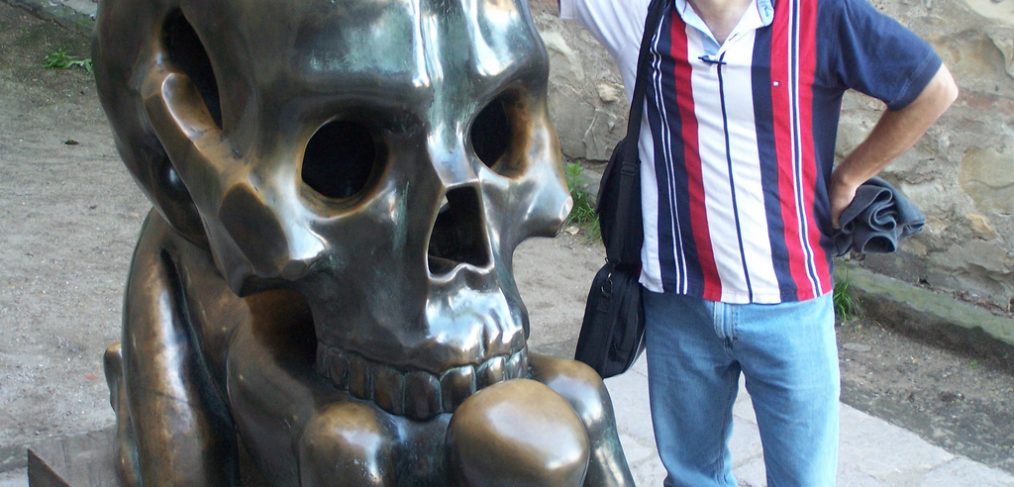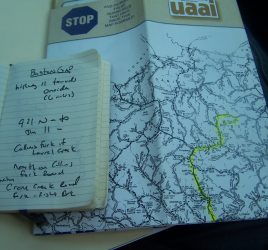
The Appalachian Archetype, or Why I Can’t Stand Cultural Critiques
While So Far Appalachia uses my family, the Bakers, as the backdrop for its narrative, the story is really about the larger issues that impact how we experience life in America: education, poverty, guns, and civic engagement.
The more I research the book and the more I write on the blog, the more focused that will become on the site.
However, the overarching themes related to stereotypes and class are really driving the book. I’ve written about each of those themes, most recently with the post On Appalachia and Reality TV and Writing, but every day my feed is filled up with images that associate Appalachia with a variety of well-worn stereotypes that have survived from the H.L. Mencken era.
The Importance of Being Working Class
One of the great failures of most contemporary criticism in this country is a complete failure to address class in a meaningful way. It’s oftentimes pushed beneath race and gender, the two dominant relational issues through which many cultural critics view the country.
When I first started writing this book, I found myself debating a feminist friend about the primary importance of class when discussing the region.
“Class may be important,” she argued, “but the women in Appalachia most certainly are less well off than the men.”
In that particularist argument, she is most certainly correct (although I haven’t looked at the most recent data, which would reflect that more women now graduate college than men and thus are changing that dynamic). Regardless of the veracity of her particularistic argument, it’s her claim itself that reinforced the idea that the region must operate within its own walled-off bubble.
In other words: what’s primarily important in her argument isn’t that the region has been cut-off from the economic growth of the country, but instead its that the women in that region get a smaller portion of the shrinking Appalachian economic opportunity.
My argument is that the structure of American society is such that when Appalachians are considered, they are considered with a class bias. They have arbitrary and specific limitations put upon them, which makes leaving the insular bubble of Appalachia (and its rapidly declining economic fortunes) extremely difficult.
Leaving the region doesn’t just entail driving a car to the city. It involves overcoming sub-standard education, developing a professional network with very mentors, and establishing firmly rooted support communities from scratch. This needs to be done all while battling the cultural implication that people who do come from Appalachia are likely racist, dumb, and poor. (Oh, how often have I been called well spoken?)
As an example, take our friends with Duck Dynasty, which portray our protagonists are bearded, country folks who are running a business.
“I’m fixin’ to go crazy redneck up in here.”
The trailer reinforces the cultural identity Americans seem to hold about Appalachians. Even the Appalachians who find some economic success are stuck in the cultural trap.
It certainly stands in stark contrast to “Before the Beards“, which shows what the family looked like before the Duck Dynasty show began.
The Selling Of Appalachia to Real American
The debate I had with my friend stems from the complexity of cultural criticism in this country. We simply aren’t trained to understand class, in some measure because its not easily understandable with a glance. As such, we pay primary importance to race and gender, which are (in general) more readily recognizable.
Fortunately, modern television is making it much easier to identify the nature of the problem I tried to articulate to my friend. For instance:
Appalachian Outlaws on the History Channel
“There ain’t no law, except our own”
Hollywood Hillbillies on Reelz
“Oh my god, we’re going to real life Hollywood hair saloon.”
Hillbilly Blood, “Moonshine Mechanics”
“Spencer’s got a classic mountain way of saying: hiding.”
A Final Word
It’s important to reiterate that my critique of modern culture criticism isn’t meant to dismiss those thoughts. A single point of argument doesn’t render meaningless gender or race-based critiques of the culture.
However, Americans tend to become myopic when it comes to critiquing our culture. We find a few political touch-points, and then frame much of our debate through those, as if our country can be best understood through just those few lenses.
If So Far Appalachia finds any success, I hope some of it is based upon the idea that how we talk about our country needs to expand beyond our traditional lenses, particularly as our demographics are undergoing such a large shift.
We are in the midst of what I hope will be a re-envisioning of our culture, one that begins to look at more nuanced cultural touch-points and offers up a more realistic examination of how we may live



